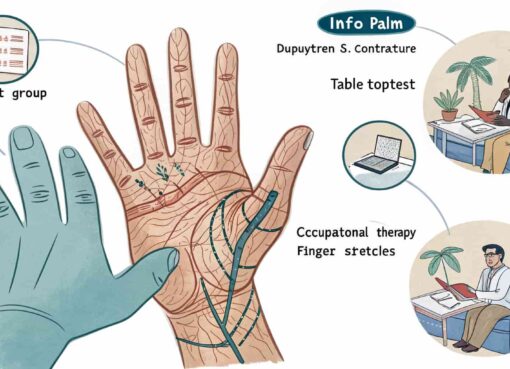Healthier Smiles: The Role of Dental Coverage in Promoting Oral Wellness

Introduction
Oral wellness is a cornerstone of overall health, impacting everything from self-confidence to enjoying one’s favorite foods without discomfort. Yet, pursuing a healthy smile can be daunting without proper dental care and coverage. Many are unaware of dental coverage’s profound impact on oral and general health. This article delves into the significant role dental insurance plays in promoting oral wellness, examining various facets such as the importance of preventative care, how to select the optimal plan, and the promising future trends in dental health coverage.
Connection Between Dental Coverage and Oral Health
Dental coverage ensures consistent access to dental care, enabling individuals to maintain better oral health. Insurance-covered routine dental checkups can help avoid cavities and gum disease, among other dental problems, improving oral health and resulting in a whiter smile. People who have insurance frequently benefit from being able to take care of any problems before they become more serious ones, which can ultimately save money and misery. With dental insurance, people are more likely to keep up with routine dental visits, which are crucial for maintaining oral health. Regular cleanings and checkups allow for the early detection of dental conditions that could otherwise progress into more severe issues. By catching such problems early, treatments are typically less invasive and more cost-effective.
Furthermore, research has demonstrated the connection between general and dental health, with poor oral hygiene possibly predicting other health issues. It is impossible to overestimate the peace of mind of having insurance. Knowing that their insurance will assist in defraying the expense of their care makes people feel more comfortable seeking out routine dental care. This guarantee promotes a preventative approach to oral health. Visit https://www1.deltadentalins.com/areas-we-serve/georgia.html for more information about the importance of having a dental plan to maintain optimal oral health.
Different Types of Dental Insurance Plans
It is essential to comprehend the many kinds of dental insurance plans to choose the one that best suits a person’s requirements. Health Maintenance Organizations (HMOs) and PPOs are among the most popular plans. PPO plans are known for offering flexibility when choosing dental care providers. While staying within a network of approved providers can save on costs, patients also have the freedom to receive care from specialists of their preference, albeit at a higher price. On the other hand, HMOs tend to feature lower premiums and co-pays but require individuals to use a network of designated providers to reap their plan’s full benefits, potentially limiting their choice of dentists. Discount plans provide another option for individuals who don’t require full insurance. Under these plans, members can receive services at reduced fees from participating dentists. While they do not offer full insurance benefits, they can be a cost-effective way for those seeking occasional dental care to save money. To sum up, each plan type offers unique advantages, and finding the right fit involves understanding one’s needs, comparing plan benefits, and sometimes, trade-offs in provider flexibility and cost.
The Importance of Preventative Care
Preventative care is a fundamental aspect of comprehensive dental coverage. It encompasses regular dental cleanings, checkups, X-rays, and other diagnostic tests essential for detecting and addressing issues early. Preventative services typically include examinations and cleanings, which can prevent the onset of cavities and gum disease. People can prevent future, more involved, and expensive treatments by actively maintaining their dental health. Furthermore, routine dental examinations might reveal alterations in the oral cavity that may point to more serious conditions like diabetes or heart disease. Routine dental care is critical to overall well-being, reinforcing that a healthy mouth contributes to a healthy body. When dental problems are identified early, they can often be managed with less invasive procedures, reducing pain and cost. For these reasons, dental insurance plans usually cover preventative services at low or no out-of-pocket expenses to encourage utilization.
Tips for Choosing the Right Plan
Selecting an appropriate dental plan can significantly influence the ease and efficiency with which one maintains one’s oral health. While it might seem daunting, understanding key considerations can simplify the process. Firstly, assessing personal dental health needs is essential, as well as determining whether comprehensive coverage is necessary or if basic preventative care coverage will suffice. Analyzing past dental care expenses can be valuable for predicting future needs. Secondly, compare the costs of acquiring insurance, including premiums, deductibles, and co-pays. The goal is to balance affordability and comprehensive coverage, ensuring that routine care is accessible without leading to financial strain. Another critical aspect is evaluating the network of available dentists. If it’s essential to keep a current dentist, ensure they accept the insurance plan being considered. Network flexibility might be worth higher premiums for those who prefer specific specialists. Understanding the complete list of services a plan covers can also guide decision-making. Plans that emphasize preventative care and have reasonable annual limits are often most beneficial.
Real-Life Improvements and Success Stories
Access to dental coverage can have a life-altering impact, transforming smiles and boosting overall health. Numerous stories highlight individuals who have overcome significant health hurdles due to dental insurance. For example, consider a young professional who neglected dental care because of cost concerns. After securing a dental insurance plan, they began regular visits, where early-stage cavities were identified and treated effortlessly. This proactive approach improved oral health, preventing serious health issues and painful dental procedures. Real-life improvements underline the critical role of dental coverage in promoting a preventive care approach, which helps individuals avoid major oral health crises and costly treatments. They illustrate how insurance can facilitate regular care and contribute to overall health and wellness in a way that benefits both the individual and the system.
Future Trends in Dental Coverage
The landscape of dental coverage is evolving, with trends pointing towards more holistic and integrated health care plans. Increased awareness of the connection between oral and general health leads to more comprehensive insurance offerings. There’s a growing trend towards plans integrating oral health with overall wellness strategies. As healthcare systems recognize the importance of a collaborative approach to health, dental insurance is being integrated into broader health plans. Additionally, technological advancements are shaping future trends in dental care, enabling more personalized and efficient treatment options. Tele-dentistry, for example, is gaining traction as a convenient and effective tool for accessing dental care, virtually offering preventative consultations and post-operative care. Overall, the future holds promise for an increasingly interconnected healthcare environment. As dental coverage evolves, individuals will have more tools and resources to maintain their oral and overall health.
Conclusion
Dental coverage is more than just a safety net; it is a vital component of comprehensive oral health care. Dental insurance is indispensable in promoting oral wellness by offering preventive services, fostering early detection of potential issues, and reducing out-of-pocket expenses. Individuals can safeguard their oral health and enhance their overall well-being by selecting the right plan and embracing evolving trends. Focusing on preventative care and maintaining regular dental visits makes the journey towards healthier smiles less complicated and more sustainable. With dental coverage, individuals are empowered to take charge of their oral health, reducing the risk of dental problems and ensuring a brighter, healthier future.




Leave a Comment